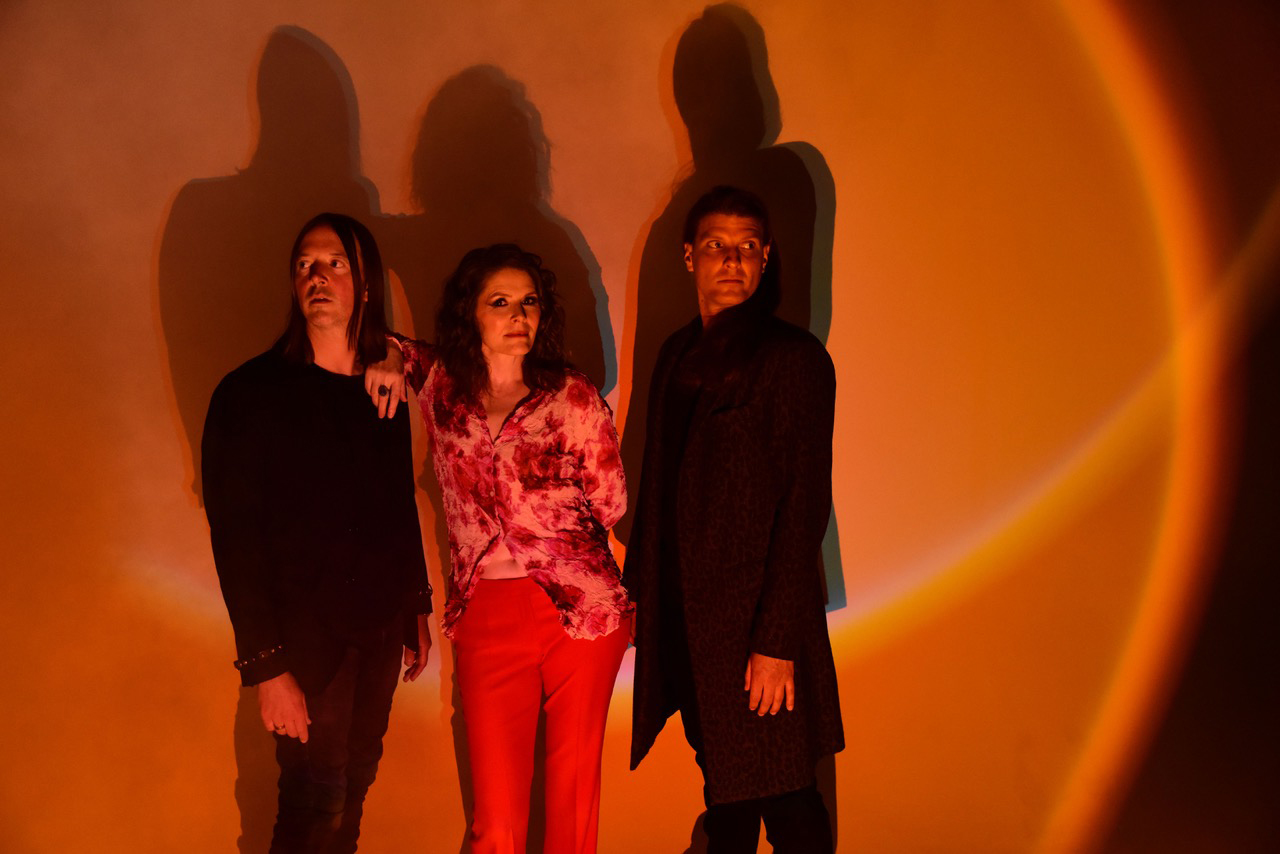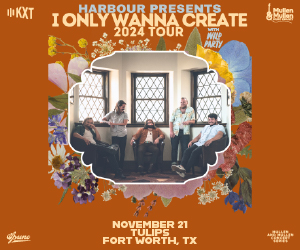
Heavy MakeUp (L to R: CJ Camerieri, Edie Brickell and Trever Hagen)
Photo: Shervin Lainez
One of the many perks of writing for KXT is the opportunity to not only interact with artists from across North Texas, but also those regional, national, and internationally recognized musicians who are just passing through.
Over the course of dozens of interviews through the last 12 months, I’ve enjoyed more than a few fascinating conversations, the kind of chats where you leave with your perspective on an artist and their work often radically recalibrated — a small, subtle expansion of your worldview. Here, in no particular order, are some of my most memorable encounters from 2023.
“There are many valleys people walk in their lives,” Turner told me earlier this year. “I don’t think that’s something we get to escape as human beings. The darkness — man, it can feel unending sometimes. … I just hope people get a sense for that in the songs — that, you know, it might be dark now, but the morning is always bound to come.”
“I’m lucky enough to where I get to play 35 stadiums this year,” the Plano native told me ahead of opening for Taylor Swift at AT&T Stadium. “Every stadium is a new experience, a new way to play. It’s the most amazing thing ever. … I’m really trying to get myself experienced as an opener and trying to maintain and capture people’s attention. … I’m really focused on creating my community, but also sharpening my tools as a performer.”
“I know the first time I heard Hank Williams, I had no idea what I was listening to, and thought it sounded old — the recording,” Jack Torrey told me during a joint conversation with bandmate Page Burkum. “Stylistically, there was an aspect of it that sounded like it could be from tomorrow or from an alien world. … We’re not nostalgic — we don’t think the past is better than now, or worse. … It’s more about it being the kind of language we’ve learned and started to speak through.”
“I just want to put out a really good record,” Keen told me during our chat. “I don’t want to feel any pressure from one camp or another about how it should be, or what it should sound like. … One of the real obligations that you do have as an artist is to somewhat chronicle your life in some ways. … I’m older now. I want to see what my skill level is at this point. I’m sure it’s not as sharp as it was 20 years ago, but it doesn’t mean I haven’t learned a lot of stuff since then.”
“I want to make [our father, the late Dennis Gonzalez] proud, and make him feel like we’re preserving his legacy the best we can,’” Gonzalez told me earlier this year. “We just played music together for so long … it’s not that I ever tried to take it for granted, but when it becomes normal, you don’t look at it from the same angle — it’s just your reality. After he passed, it was like a flower bloomed right in front of our face.”
“I hope folks hear the magic and heart in Bobbie [Nelson]’s playing,” Shires told me earlier this year. “I hope folks feel the love that we have for these songs. I do also hope we may inspire some folks to learn to two-step or waltz.”
Andy Summers
“I started photographing [in the] early days of the Police,” Summers told me during our chat. “It wasn’t a five-minute interest. It stayed with me as a creative medium. I suppose later, you can think about it. I guess that did help me get through it in a way. You think about all the ultra-chaos that we went through; it was a way that you could be involved with it, mentally, physically, and all that stuff like a high-flying rock band might be going through. At the same time, I could be an independent observer, and try and record it in a way, too.”
“There’s a dedication and surrender Roy had towards the music that I think is super important, and gets easily lost,” the widow of Dallas-bred jazz great Roy Hargrove told me earlier this year. “A lot of musicians, they’re like, ‘Well, you know, you got to pay your rent, and you got to worry about this, worry about that.’ He would always be adamant: ‘No, you have to worry about the music. That’s it.’ There was a dedication to and a seriousness about the music … He gave his life to it.”
“It’s mostly about the people,” Brickell told me during our chat. “If the people, the players, have a good feeling, they’re good people, then I’d like to make music with them. … What I like to do is just really listen and pay attention to the vibe that musicians are bringing, and then sync to it. … I love to play with music with people, and the way that we used to do it when we were kids — we would just get together and jam. It wasn’t about a career. … The beauty of that youthful experience where nobody was doing it for money. They were doing it for the expression, to have fun, and maybe, if you’re lucky, get gigs.”
“I’m kind of always talking to myself,” DeLaughter told me. “It starts with me, because it’s all written out of visualizations and improvising, and when you go there, you’re in the midst of whatever comes to you at the time. I found that what I’m going through, other people seem to be going through as well, at times. Even if you go back to Tripping Daisy, there’s this reaching for something, and this hopeful feeling I’m trying to get to.”
Preston Jones is a North Texas freelance writer and regular contributor to KXT. Email him at [email protected] or find him on Twitter (@prestonjones). Our work is made possible by our generous, music-loving members. If you like how we lift up local music, consider becoming a KXT sustaining member right here.






